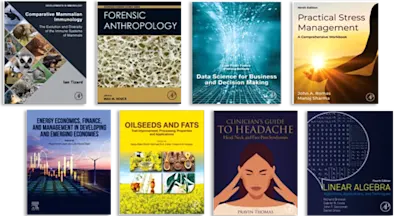
Keys to Afrotropical Fauna
- 1st Edition - August 10, 2025
- Imprint: Academic Press
- Editors: James H. Thorp, Musa Mlambo
- Language: English
- Hardback ISBN:9 7 8 - 0 - 1 2 - 8 1 7 9 4 7 - 5
- eBook ISBN:9 7 8 - 0 - 1 2 - 8 1 7 9 4 8 - 2
Keys to Afrotropical Fauna provides the gold standard for books on aquatic invertebrates of Africa. It is the primary source for applied and basic studies of inland water invertebr… Read more

Purchase options

Institutional subscription on ScienceDirect
Request a sales quoteKeys to Afrotropical Fauna provides the gold standard for books on aquatic invertebrates of Africa. It is the primary source for applied and basic studies of inland water invertebrates of Africa, whether the user is focused on human health (disease vectors), aquaculture, or general ecology and systematics. This text can be used by scientists from many countries and continents who are studying aquatic fauna in Africa, as well as by teachers and students in academia and employees in government agencies in many African countries.
Each book of the series is developed to be the most modern and consistent set of taxonomic keys on the region. The design of the series provides a highly comprehensive, current set of keys in one place for each of these bioregions, with all keys written in a consistent style. This book is essential for anyone working in water quality management, conservation, ecology or related fields in these regions.
- Includes sections throughout that summarize basic facts on each chapter’s focal group, along with a discussions on limitations for identification and important anatomic terms needed to use the keys
- Provides layered taxonomic keys, allowing users from diverse backgrounds to fully utilize this important work
- Includes a section on preparation and preservation of specimens for identification (usually under a microscope) and then how to preserve them for future use
Professional scientists and technicians in ecology, environmental science, freshwater biology, limnology, invertebrate zoology and related fields, private companies, government agencies, and NGOs
2. Protozoa
3. Phylum Porifera
4. Phylum Cnidaria
5. Phylum Platyhelminthes
6. Phylum Nemertea
7. Phylum Gastrotricha
8. Phylum Rotifera
9. Phylum Nematoda
10. Phylum Nematomorpha
11. Phylum Mollusca
12. Phylum Annelida
13. Phylum Ectoprocta (Bryozoa)
14. Phylum Entoprocta
15. Phylum Tardigrada
16. Phylum Arthropoda: Introduction and Arachnida
- Edition: 1
- Published: August 10, 2025
- No. of pages (eBook): 700
- Imprint: Academic Press
- Language: English
- Hardback ISBN: 9780128179475
- eBook ISBN: 9780128179482
JT
James H. Thorp
Dr. James H. Thorp is a professor and senior scientist at the University of Kansas (Lawrence, KS, United States). Prior to 2001, he was a distinguished professor and dean at Clarkson University, department chair and professor at the University of Louisville, associate professor and director of the Calder Ecology Center at Fordham University, and research ecologist at Georgia’s Savannah River Ecology Laboratory. He received his Baccalaureate from the University of Kansas and Masters and PhD degrees from North Carolina State. Prof. Thorp has been on the editorial board of three freshwater journals and is a former president of the International Society for River Science. His research interests run the gamut from organismal biology to community, ecosystem, and macrosystem ecology. While his research emphasizes aquatic invertebrates, he also studies fish ecology, especially food webs related. He has published more than 150 research articles and 10 books, including five volumes so far in the fourth edition of Thorp and Covich’s Freshwater Invertebrates.
MM
Musa Mlambo
Musa Mlambo is a principal museum scientist at Albany Museum in Grahamstown, South Africa. He has broad interests in ecology, conservation, and management of biodiversity, with a special focus on freshwater ecosystems. He largely works on intermittent rivers, ephemeral streams, and temporary wetland ecosystems studying ecological, biogeographic, and taxonomic questions related to biodiversity conservation.